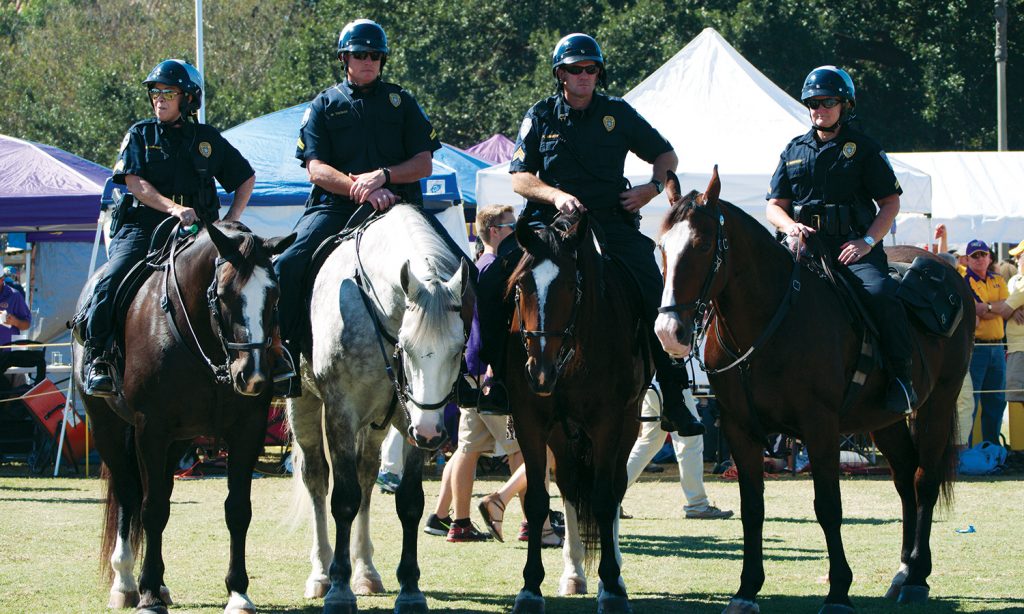
It is established that the public has high expectations when they call upon police for service, and they likely believe officers will perform to the best of their ability on arrival. Unfortunately, this is not always the case, and citizens do not reliably get the service they deserve. Sometimes officers shirk their duties or take shortcuts in service because they have become preoccupied by an external irritation, such as an injurious workplace filled with rude, discourteous and uncivil behaviors from co-workers. How does this happen and how do we intervene?
How workgroups work
Police departments tend to divide work among groups, such as patrol, investigations/detectives, K9, traffic units, drug enforcement and so forth. The groups we work in, our workgroups, often influence our attitudes, affect the way we view ourselves and others, pressure or support us, and impact our work productivity and performance. Workgroup success largely derives from the process of interactions of mechanisms connecting leadership, motivation, interdependence, cooperation, cohesion, collectivism, and warmth and support.
For many of today’s organizations, work has become complex enough to require the use of constructive teams and workgroups. Police organizations seem to exemplify complexity through their quasi-military style of operating through ranks, rules, regulations, policies and directives. Still, organizational success often pivots on the ability of a group to work together competently and resourcefully. Effective managers with a focus on total organization improvement teach workgroups how to identify, diagnose and solve their own problems. These managers encourage creativity, cooperation and coordination within groups for increased productivity and organizational success.
Managing for success
Successful police leaders tend to transcend the purely rational relationship processes and establish an emotional bond with group workers, meaning that police leaders must not lose touch with the people who make up the modern police force. The manager must engage the full person of the worker, which includes an employee’s needs, control over their activity, and more autonomy in decision-making authority. Managers must move beyond compliance-driven performance and foster each individual’s learning and development. Police leaders need to create an interest in work so the officer believes in the cause they are working for and finds value in the social significance of their work. When managers of the police organization recognize and tend to the individual’s needs, the employee is more likely to become committed to the group and organization.
Therefore, it is important for a manager to know when and how to use certain groups within the organization for problem solving. For example, a police supervisor should accentuate and facilitate ongoing interactions among officers working the same beat area in different time frames. What’s more, skillful leaders can guide groups away from stifled decision making, toward constructive disagreement resolutions and conflict management. As a result, managers need to receive criticisms of practice, policy and personnel. They need to assign groups to resolve problems, review threats to workgroups and hold sessions for members to air grievances or reservations in a nonthreatening environment.
Moreover, effective police group management involves providing direction, not impersonal mandates; coaching, not ignoring; training, not abandonment; and leading, not supervising to the point of distraction. Accordingly, a leader can steer a group toward achieving good outcomes and improved performance for the organization. Correspondingly, the top characteristics admired in police leadership are honesty, integrity, strong communication and work ethic skills, responsibility, fairness, and sound decision-making ability.
When workgroups go wrong
If managers fail to take workgroup development seriously, antisocial behaviors in the workplace will begin to surface. Individuals, groups and the organization can suffer impairment such as negative attitudes, turnover, lost potential, incivility, frustration, rationalizing failures, repeated unsuccessful attempts to complete a task, childish behavior, withdrawal, workplace bullying and decreased performance. These behaviors lead to unhappiness and unnecessary distractions, creating a generally stressful environment and a negative workplace.
With the potentially destructive effects a negative workplace has on individuals, groups and organizations, it is crucial that managers understand what behaviors and actions affect workgroups, teams and units. Expert high-performing teams coordinate among themselves; operate in high innovation climates; hold a sense of oneness; encourage engagement; and follow managers who know that workgroups impact team cohesion, cooperation, coordination and performance. Once a leader has acquired this awareness, one begins to see the connections and relationships everywhere.
In the end, it becomes incumbent on supervisors to acknowledge abusive workgroups and react appropriately when a police agency languishes due to problems between co-workers. Supervisors must intervene and use legitimate organizational techniques to correct worker misbehavior. Techniques can range from informal discussions to retraining, career coaching, documentation, progressive discipline, removal from specialty assignments, performance improvement plans, suspensions or terminations. Regardless of the approach, the provoking employee needs immediate reprimand, correction, observations and termination if noxious behaviors continue. Either way, uncivil behaviors in police departments cannot be ignored; otherwise, supervisors become complicit and enable unhealthy behaviors to endure. If a supervisor is part of the problem, then that supervisor’s superior needs to address the offending subordinate properly to ensure uncivil behaviors stop, and it goes up from there. It is said that problems often start at the top, so maybe the chief executive of a police department needs to go.
The bottom line
Ultimately, police departments must address hostile, abusive employee behavior promptly. By doing this, police managers can build highly effective police workgroups that are characterized by interdependence, cooperation, cohesion, collectivism, and warmth and support. Police managers shouldn’t build effective workgroups just because it’s nice; this needs to be done because it’s necessary. We do this for the people we police for. Nobody wants low-performing officers responding to calls for service. Citizens deserve our best.
This is an original work adapted from Bitner, C. (2018). Exploring the Relationship Between Workgroups and Police Performance. Law Enforcement Executive Forum. Vol. 18.3.
As seen in the July 2019 issue of American Police Beat magazine.
Don’t miss out on another issue today! Click below:





